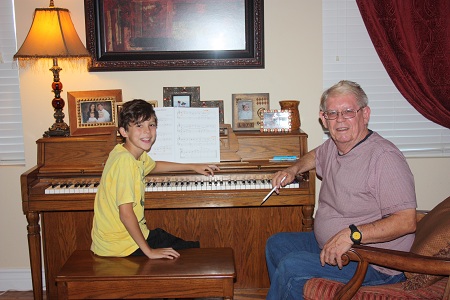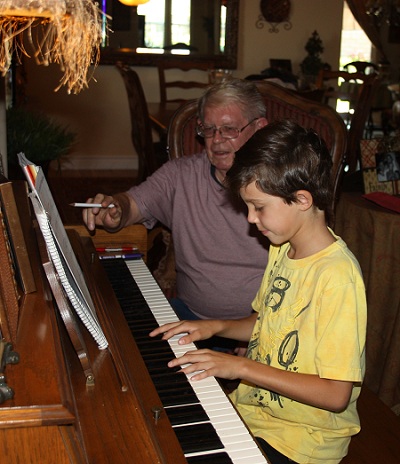Philosophy & Methods
It seems to me that the most important mission of the piano teacher is to guide the practice toward the day when the student can become his own teacher. Working himself out of a job, as it were, the teacher should help the student meet his pianistic challenges until eventually the student makes himself independent of formal teaching. - William S. Newman

I’m not locked into any single piano course as I do not believe in a “one size fits all” approach.
Most methods are very good but none are complete. I tailor the methods I use to the student. This is an important aspect to my approach to teaching. Having patience, relating to each individual student, understanding their problems, tuning into their sensitivity, praising them for good results, having empathy, communicating ideas, humor and making each student feel comfortable is more important than any method of study.
After about six months of lessons, I should become deeply familiar with a student's strong and weak points of development. This profound awareness enables me to help the student learn and master the piano. I believe that the art of teaching piano is to present information and assign musical projects that are difficult enough to be challenging, easy enough to master and musical enough to hold their interest.
When I encourage students to practice regularly, I also mention that practice is work. I don’t want to deceive them. I’m rather blunt and specific about this point because, later on they will respect my honesty. I realize that to most children the idea of “work” is intimidating but good news usually follows bad news. The student will likely believe that work is the opposite of play or fun, it’s my job to teach them that “work” is the highest form of play. A good student can enjoy every minute of practice or at most it. With very young students it can take up to a year to pick up on the concept of delayed gratification.
Some music teachers like to show how different or unique their individual approach to teaching is. Many teachers may favor one method over another and maintain a uniform plan for all students, focusing on the uniqueness of the plan rather than the needs of the student. There's also a danger in believing claims about new and improved methods that will have you playing great music in two weeks!
I don't claim "uniqueness" in my approach as many piano teachers apply the same school of ideas that I'm about to describe.
Our uniqueness is found in our personalities and how well we communicate. There are over a dozen methods and a wide variety of supplements. The conclusion I’ve reached, from my years of experience, is that the student will determine which method I will use, based upon age and aptitude.

The study of piano is also a basic course in problem solving which is part of the reason studies show that piano students do better academically than those who do not take lessons. There are very many benefits to taking piano lessons, including the joy of making music, learning to be goal oriented, problem solving and building self confidence. I can assure you that with my approach, most students will demonstrate these benefits as long as they are intelligent and receptive to learning, have some talent and a healthy curiosity.